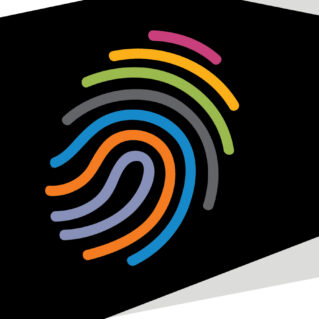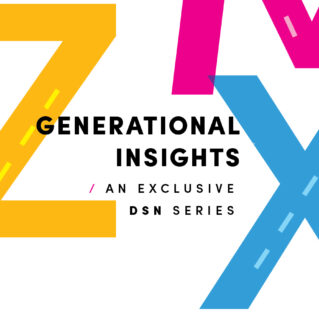Click here to order the November 2017 issue in which this article appeared.
I LOVE BEING IN THIS CHANNEL. Over the past 27 years, I feel like I’ve seen it all. And really, truly, from daily field work to taking part in growing businesses, seeing the operations and mentoring young business leaders, I can’t imagine a better script for my career. I’ve seen lives changed, confidence grow and dreams become reality. I credit this to our channel. I believe it’s the only work environment that focuses on the whole self. And we continue to sit on a vast reservoir of untapped potential.
But today I love my job for a different reason.Leading LifeVantage has given me an exciting perspective—a bird’s-eye view of where we’re headed in the years ahead. I see a few trends emerging that will propel our industry into the future if we’re prepared. On the other hand, they’ll bury us if we ignore them.
THE RISE OF SOCIAL ENTREPRENEURISM
With the advent of Uber, I can’t remember the last time I took a taxi or rented a car. On a recent family vacation, we simply used Uber to get around. Instead of booking a hotel, we used Airbnb. Both experiences were so simple—and, might I say, affordable—that I can’t believe we ever did things differently. I loved the opportunity to chat with both our driver and our host, each of whom eagerly told us how much they loved working for their respective companies.
Uber and Airbnb aren’t simply a pair of companies that have completely disrupted the status quo. Now, they’re also our competitors.
That’s right.
The landscape is shifting and the various sales channels are converging. In the very near future, our main competition won’t be the other direct selling company down the road vying for the better products and distributors. We’re competing against the entire gig economy. That’s literally everyone out there who’s looking to run their own businesses, or run a side hustle or buy into an experience rather than just a product.
My big meta question to our universe is this: Are we really in the business of direct sales anymore?
I don’t mean this rhetorically. After asking myself this question almost daily, I believe that we’re evolving into something more akin to a mix between social commerce and social entrepreneurism.
Right now we’re seeing a massive convergence of business spaces and channels. Digital and brick and mortar are becoming seamless. Because huge brands can’t hog the mic anymore, social commerce is paving the way for an entirely new way to do business. Right now it’s a race to see who can provide the best product with the best experience. In a world where anyone online can cut through the clutter with a great review or by launching a game-changing product from their garage, our old model of slow-moving direct sales isn’t going to cut it.
The good news is that social commerce is already in our DNA. If anyone knows how to share a product and create vast networks, it’s us. The question that remains, however, is how do we Uber-ize our business model? In other words, how do we integrate the technology that simplifies our approach enough to keep competing in the new gig economy? The first company that answers this wins.
HEALTH IS GETTING PERSONAL
Health and wellness companies used to dictate to their customers. They showed the science and prescribed the doses, which was totally OK because customers didn’t expect anything else.
Now more data and better technology have democratized health. People understand their bodies on an unprecedented level. Personally, I know exactly how much REM (sleep, not the band) I need every night, what my ideal heart rate looks like and how many grams of protein I should eat. I have apps for this. I have data for this.
Our customers are managing their health like their finances, and they want a degree of personalization and control over the products they buy. We have to understand that scientific research is great, and we still have to show that our products work clinically. But we also have to show people what these products mean for them as individuals.
For example, at my company, clinical studies show that our flagship product decreases oxidative stress, the imbalance between free radicals and the ability of antioxidants to neutralize them, by 40 percent in 30 days. But our customers won’t take this at face value anymore. They want to understand specifically what oxidative stress means for their own lives. They also need to be able to measure the effects in their own bodies. And most important, they have to see and feel these results. Our approach is to embrace this trend and create biohacking products and technology that allow individuals to take even more control over their health.
Each of our companies will have to identify its own approach. And the wonderful thing about our channel is that those approaches will be as varied as our companies. However, the health-activated individual is here to stay.
SIMPLICITY IS THE SECRET INGREDIENT
My Uber driver might not have realized it, but the best part of that ride (for him, at least) was that he didn’t have to find his customer. Technology pushed me to him effortlessly. He didn’t have to cold call, network, schedule a meeting or convince me.
We’re living in the middle of the gig economy where the side hustle now takes center stage. Make no mistake, we no longer hold a monopoly when it comes to attracting talented people who want to make additional income on their own terms. So we’re now tasked with competing within our own channel for market share while also competing against the Ubers of the world for the entrepreneurial spirit of millions of people.
If we’re going to win this battle, we have to simplify. And then we have to simplify some more. Looking at our channel as a whole, it’s an understatement to say that our compensation plans are complicated (sometimes you almost have to be Einstein himself to decipher the things). Our communications to the field can be slow. Finding customers can be a daily grind. As a channel, we need to embrace technology as a way to streamline everything we do. If we don’t, we’re in trouble.
If we ignore these trends, we do so at our own peril.
I believe that our channel is at a crossroads right now. We have incredible value to offer. We are very good at improving lives, creating products that work and giving thousands of people an incredible opportunity. But we must adapt or we won’t survive.
It doesn’t seem like long ago that my wife and I would drive to our local Blockbuster on a weekend and browse the aisles lined with DVDs. We all know how Blockbuster’s story ends. The company failed to see the growing trend of consumer convenience and personalization. They ignored technology. And they got Netflixed. Today, we can’t live without streaming services, so it’s easy to wonder how Blockbuster could have never seen its downfall coming.
I don’t want people to wonder the same thing about us.

Darren Jensen is the CEO of health and wellness company LifeVantage.


